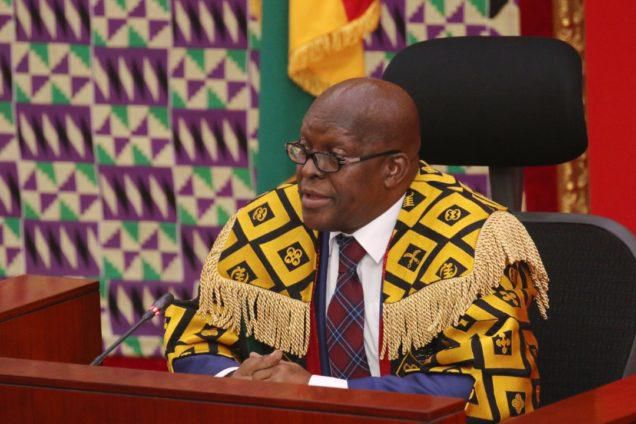Bagbin's declaration of 4 seats vacant is wrong and bad precedent - Prof. Asare
)
According to Azar, this decision could set a dangerous precedent, discouraging MPs from considering future political ambitions due to fear of immediate consequences.
In a Facebook post on Thursday, 17 October, Azar criticised the ruling, suggesting it could destabilise the balance of power determined by the electorate. He expressed concern that it might limit MPs from exploring future political paths and argued that such a move risks undermining both parliamentary independence and Ghana's democratic processes.
“This ruling sets a dangerous precedent, undermining MPs’ ability to plan their political futures without fear of immediate consequences,” Azar warned, further adding that the decision could lead to arbitrary outcomes where filing for future elections might be wrongly interpreted as a shift in allegiance. Such a broad interpretation, he argued, could destabilise Parliament by prematurely vacating seats and upsetting the voter-established balance of power.
The professor also contended that the ruling contradicts the fundamental right to freedom of association, specifically MPs' right to explore political affiliations. Azar explained that treating a nomination for a future election as evidence of severing ties with the current party is unfair and discourages MPs from planning their future political careers.
“This broad interpretation risks destabilising Parliament by prematurely vacating seats, disrupting voter-established balances, and eroding the principle that MPs serve their full term unless they explicitly change allegiance,” Azar noted.
This is not the first time Kwaku Azar has raised concerns about how parliamentary vacancies are interpreted in Ghana’s legal framework. In 2020, he asserted that only the High Court has the jurisdiction to declare a parliamentary seat vacant, arguing that neither the Speaker nor political parties possess such authority.

The Speaker's decision followed a motion brought by former Minority Leader Haruna Iddrisu, which cited constitutional provisions requiring MPs running as independents to relinquish their parliamentary seats. The ruling led to a protest by the Majority, who walked out of Parliament in opposition. The MPs affected by this ruling include Cynthia Morrison (Agona West), Kwadjo Asante (Suhum), Andrew Asiamah Amoako (Fomena), and Peter Kwakye Ackah (Amenfi Central).
In his social media post, Kwaku Azar further emphasised that filing a nomination for future elections does not equate to severing ties with one’s current political party. He pointed out that nominations merely reflect an MP’s intentions for the future and do not alter their current responsibilities or obligations.
He also stressed that the law is designed to safeguard the balance of power in Parliament during an MP’s term and does not apply to intentions regarding future elections. The law, he argued, aims to ensure stability in Parliament, allowing MPs to serve the full term they were elected for.
Azar concluded by highlighting that this ruling could set a worrying precedent affecting MPs’ ability to plan for their futures. He suggested that it could have broader implications, potentially discouraging MPs from considering political realignment or exploring new opportunities for fear that such actions might be interpreted as breaching their current obligations.
)
)
)
)
)
)
)
)
)
)
)